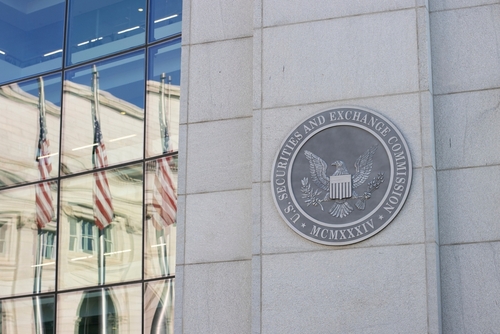While much of the focus on the Securities and Exchange Commission’s (SEC) latest rulemaking had to do with the changes impacting private funds, a provision buried in the guidance now requires all SEC-registered advisers to document in writing the annual review of their compliance policies and procedures.
 The SEC in a divided 3-2 vote on Aug. 23 adopted new rules and amendments requiring private fund advisers registered with the Commission to provide investors with quarterly statements detailing certain information regarding fund fees, expenses and performance. The final rules also require registered private fund advisers to obtain and distribute to investors an annual financial statement audit of each private fund it advises and, in connection with an adviser-led secondary transaction, a fairness opinion or valuation opinion. The final rules also prohibit all private fund advisers from providing investors with preferential treatment regarding redemptions and information if such treatment would have a “material, negative effect” on other investors.
The SEC in a divided 3-2 vote on Aug. 23 adopted new rules and amendments requiring private fund advisers registered with the Commission to provide investors with quarterly statements detailing certain information regarding fund fees, expenses and performance. The final rules also require registered private fund advisers to obtain and distribute to investors an annual financial statement audit of each private fund it advises and, in connection with an adviser-led secondary transaction, a fairness opinion or valuation opinion. The final rules also prohibit all private fund advisers from providing investors with preferential treatment regarding redemptions and information if such treatment would have a “material, negative effect” on other investors.
Written Review
As part of the rulemaking, the reforms include amendments to the compliance rule 206(4)-7 under the Advisers Act requiring all registered advisers—including those who do not advise private funds—to document in writing the required annual review of their compliance policies and procedures.
According to an SEC fact sheet, the new requirements will help focus attention on the importance of the annual compliance review process. “We believe that the amendments will result in records of annual compliance reviews that allow our staff to determine whether an adviser has complied with the review requirement of the compliance rule,” the SEC says.
The Commission further explains that, without documentation that the adviser conducted the review, including information about the substance of the review, its staff has had “limited visibility” into the adviser’s compliance practices.
The SEC further notes that the annual review requirement was intended to require advisers to evaluate periodically whether their compliance policies and procedures continue to work as designed and whether changes are needed to assure their continued effectiveness.
“As we stated in the Compliance Rule Adopting Release, ‘the annual review should consider any compliance matters that arose during the previous year, any changes in the business activities of the adviser or its affiliates, and any changes in the Advisers Act or applicable regulations that might suggest a need to revise the policies and procedures,’” the SEC states.
No Big Deal?
In the preamble, the SEC explains that, while some commenters opposed the proposed changes, others supported them, explaining that written documentation of the annual review has been widely adopted as a standard practice by investment advisers and would not have a large impact.
Those who opposed the changes, however, indicated that it may increase costs and deter an adviser from having compliance consultants or outside counsel, and that a prescriptive approach could lead to less-tailored compliance reviews.
In response, the SEC contends that nothing in the rule prohibits advisers from seeking the guidance of service providers or outside counsel during their annual review. The Commission also notes that the rule does not prescribe a specific format of the written documentation, instead, allowing an adviser to determine what would be appropriate.
“Although this rule will now require that the adviser document the annual review in writing, it still provides advisers the flexibility to determine the scope of that review, including when, if at all, and how to communicate with service providers or outside counsel,” the SEC states.
Meanwhile, Commissioner Hester Peirce, who opposed the changes to rule 206(4)-7, inquired whether there was any concern that imposing this requirement “will result in less comprehensive reviews because they will be perceived as being a roadmap for Exams and Enforcement, rather than a document to help the adviser improve its compliance.” Peirce also questioned what the SEC’s plan was publicizing this change, as it was “tucked into a rule aimed at private fund advisers.”
Compliance with the amended Advisers Act rule will be required 60 days after publication in the Federal Register.
Reopening Custody Rule Changes
As part of its Aug. 23 meeting, the SEC also reopened the comment period on its proposed rule that would redesignate and amend the current custody rule under the Investment Advisers Act to “enhance protections” of customer assets managed by registered investment advisers, which was proposed by the Commission on Feb. 15, 2023. The initial comment period ended on May 8, 2023.
These proposed changes appear to take direct aim at cryptocurrency by expanding the current custody rule to include any client assets of which an adviser has custody.

